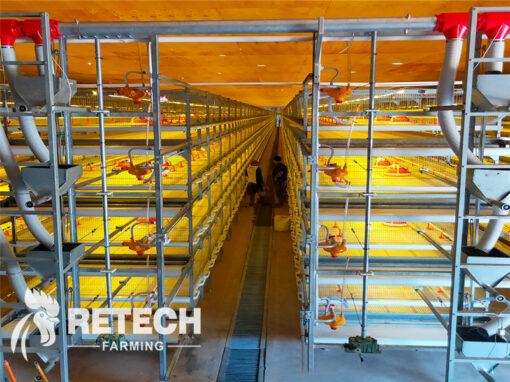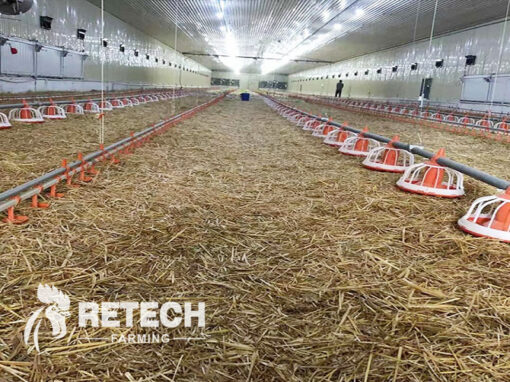Nowadays, the impact of cold stress on poultry production performance and disease resistance is becoming more and more serious. Especially in cold winter, the temperature difference between day and night is large. Once the management is improper, the flock may have a decline in egg production and egg shells due to cold stress. Poor quality problems can even lead to underlying diseases, leading to mass deaths. Let’s take a look at the effects of cold stress on chickens and how to prevent them:
What is cold stress
Perhaps most people think that the stimulation caused by the temperature is too low, but it is more than that. “Cold stress” usually refers to a series of physiological or pathological responses of poultry to environmental stimuli of sudden temperature drop (generally above 10°C) or prolonged exposure to low temperature environment (below 4°C). The occurrence of cold stress and the occurrence of pathological damage mainly depend on the strength of the stress response and the adaptability (or resistance) of the chicken to cold stress.
The most suitable temperature for laying hens is 18°C to 23°C. When the temperature is lower than 7°C, the body weight will decrease. When the temperature is lower than 4°C, the activity of the chickens will be sluggish, and the egg production rate will drop significantly or stop production. Because the estrogen level and progesterone level of chickens in the low temperature environment are reduced, which affects egg production; at the same time, the thyroid activity of chickens increases, which increases appetite, feed intake, and digestive function, reducing the economic benefits of farmers. Therefore, in the low temperature, the maintenance energy needs increase, the feed consumption of the flock increases, but the feed utilization rate decreases, and the egg production needs still cannot be maintained. Reduced feed conversion ratio.

cold stress prevention methods
- Ensure the most suitable breeding environment inside the chicken house.
- Appropriately supplement the chickens with trace elements. Vitamin C plays an important role in resisting cold stress. Under cold stress, the vitamins synthesized in the body cannot meet the needs of the body’s metabolism. Supplementing a certain amount of vitamin C can promote body growth.
- Feeding of laying hens:In order to make the chickens have a good ability to withstand the cold in winter, the proportion of high-energy feed in the feed should be increased in winter, and the protein content should be appropriately reduced. The feeding amount is appropriately increased to ensure that growth and egg production are not affected by low temperature. Chicken raising in winter needs to focus on climate change. Generally, 10-20 grams of feed is added to each flock 1-2 days before the onset of the cold snap for 3-5 days, so that the chickens can increase heat to cope with the drop in temperature. Insufficient thermal energy.

Through the above introduction, I hope to help you


